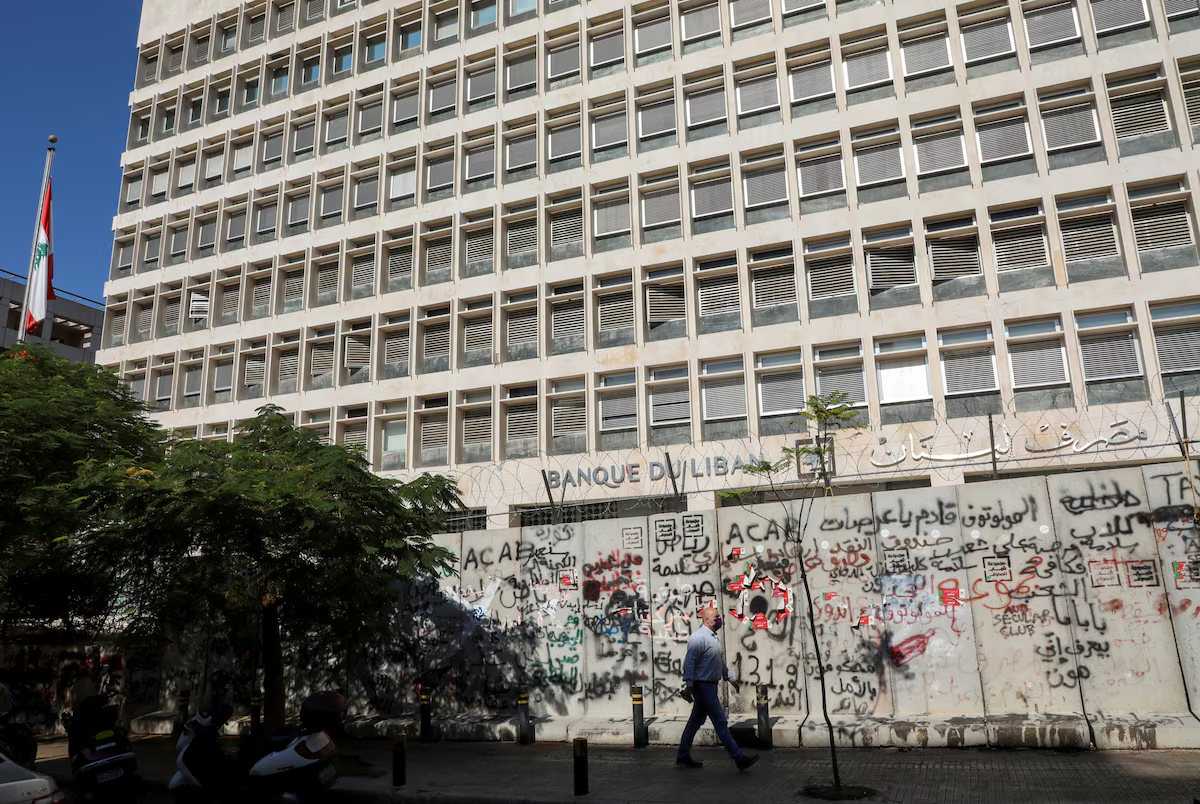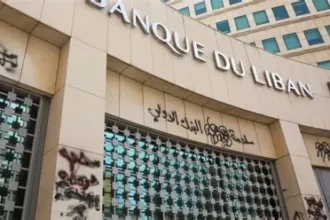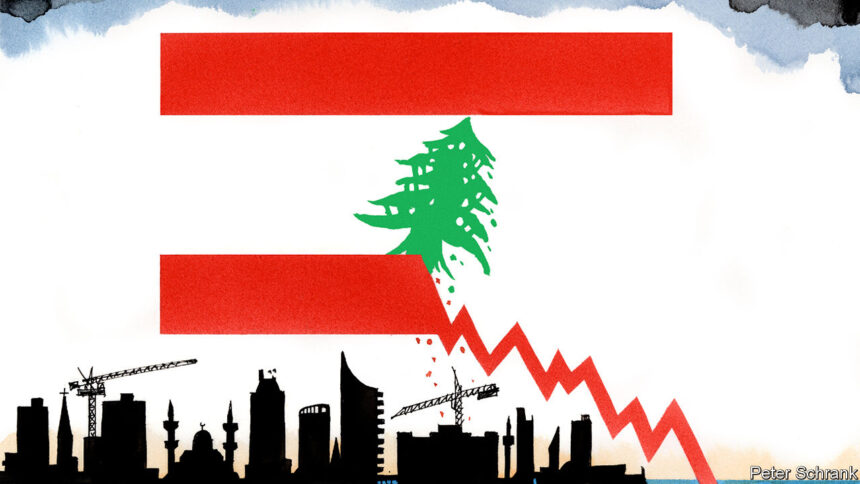The Lebanese Parliament is set to pass what can only be described as a legal heresy—if not a full-blown legislative scandal of the gravest kind.The Lebanese government’s proposed banking restructuring law in 2025 is a pivotal reform aimed at resolving the country’s ongoing financial and banking crisis, restoring depositor confidence, and meeting International Monetary Fund (IMF) requirements for financial support. The draft law, adopted by the Cabinet in April and currently under review by Parliament, forms the centerpiece of a broader package including amendments to banking secrecy laws and other fiscal reforms.
Lebanon’s financial system has been in crisis since 2019 due to mismanagement, corruption, political instability, and external shocks like the Beirut port explosion and prolonged conflict. These events caused the banking sector to teeter on collapse, freezing much of the public’s deposits, and severely eroding the value of the Lebanese pound.
The Parliament is preparing to adopt the draft law on the “Resolution of Distressed Banks,” yet without making it enforceable, as several of its core provisions are contingent upon another law that has yet to be drafted. This pending law is supposed to define how losses will be distributed, deposits reimbursed, and responsibilities assigned experts opinion gathered by CapitalIssues underlined.
Accordingy this situation raises serious legal and constitutional concernsnamely:
Violation of the principle of legal certainty and legislative clarity: A legal norm must be clear, enforceable, and immediately applicable so that citizens and institutions can regulate their conduct accordingly. Passing a law whose implementation hinges on a future, undefined law—unspecified in content or timeframe—creates a legislative vacuum and undermines public trust in the rule of law and state institutions.
Lack of legal effectiveness: A law that cannot be implemented in practice is no more than a hollow text. This breaches the principle of effective legislation, especially when the law becomes a political or PR tool instead of a vehicle for real reform. Parliament is constitutionally bound to enact laws that are actionable—not declarations of intent awaiting favorable political winds.
Undermining the separation of powers: Suspending the implementation of a law until political consensus is reached or a complementary law is issued effectively subordinates the legislative authority to executive or political will, weakening Parliament’s independence and violating its constitutional role.
Key Features of the Restructuring Law
- Creation of a Bank Restructuring Authority: Central to the law is a specialized independent body—sometimes referred to as the Higher Banking Authority or Bank Restructuring Authority—responsible for intervening in failing banks, supervising their restructuring or liquidation, and ensuring the stability of the overall financial system.
- Restructuring Tools and Criteria: The law outlines when a bank is considered failing, introducing mechanisms such as recapitalization, forced mergers, separation of risky assets, and—if necessary—orderly liquidation. Decisions on such interventions are based on thorough valuation reports and financial assessments.
- Protection for Depositors: The law particularly seeks to protect small depositors. For example, proposals include prioritizing repayments to those with smaller, older accounts—up to $100,000 for pre-crisis accounts and lower amounts for accounts opened after October 17, 2019, to be disbursed over several years. The National Institute for the Guarantee of Deposits is reinforced to ensure eligible depositor protection.
- Banking Secrecy Amendments: In tandem with restructuring, Parliament passed amendments to banking secrecy laws, granting authorities and regulators retroactive access (up to ten years) to all bank account information—a long-standing demand of the IMF and foreign partners. This aims to increase transparency, facilitate forensic audits, and curb illicit financial activity.
- Special Court for Disputes: All disputes arising from the restructuring or liquidation process will be handled by a designated special court, with the law restricting appeals in regular courts to avoid delays and legal obstruction.
- Transparency and Oversight: The law introduces new transparency requirements for all officials and bodies involved in the restructuring, including provisions to minimize conflicts of interest. Islamic banking practices and cross-border cooperation with regulators are also addressed.
- International Alignment and Support: The reforms, including the restructuring law, are explicitly designed to satisfy IMF conditions to unlock financial support, marking a crucial step for Lebanon’s road to economic recovery.
Ongoing Debates and Challenges
- Authority Structure: There is ongoing parliamentary debate about whether the restructuring authority should be fully independent of, or closely integrated with, the central bank and other existing bodies—reflecting tensions between safeguarding central bank autonomy and ensuring effective oversight.
- Depositor Concerns: While the law aims to restore trust and prioritize small depositors, there are fears about possible “haircuts” or loss of larger deposits and whether the classification of depositors (pre- vs. post-crisis) is fair or could be abused.
- Next Steps: The law must still be passed by Parliament and will only take effect alongside the anticipated “financial gap resolution law” needed to clarify how losses and debts are distributed across banks, the government, and depositors
experts say that in the bottom line the proposed law is a law without mechanisms = reform without substance: If this is intended as a framework law (loi-cadre), then a clear timeline for the issuance of implementing legislation must be included. Leaving key implementation mechanisms suspended without a binding schedule or legislative commitment is nothing short of an abdication of responsibility.
Also it is seen as a political bargaining chip, not a reform tool: In Lebanon, this tactic is frequently used to bypass international demands (such as those from the IMF), without genuine intent to implement reform. As a result, the law becomes a token of negotiation rather than a binding legal framework, further eroding institutional credibility.
Will the proposed Bank Restructuring Authority in Lebanon will play a central and comprehensive role in managing failing banks to protect depositors and stabilize the financial system?
Key functions of this specialized independent body include:
- Initiating Bank Restructuring: The Authority has broad powers to intervene in banks deemed failing or likely to fail. It can initiate restructuring processes aimed at recapitalizing viable banks, enforcing forced mergers, or separating risky assets.
- Asset Management and Transfers: It can appoint independent valuers to assess the banks’ assets and liabilities accurately and has the authority to enforce transfers or disposals of assets as part of the restructuring.
- Triggering Liquidation Procedures: If a bank is non-viable despite restructuring efforts, the Authority can decide to liquidate it in an orderly manner.
- Ensuring Continuity of Essential Banking Services: The intervention aims to minimize disruption to the banking system and ensure that essential financial services continue uninterrupted.
- Protecting Depositors: Working with the National Institute for the Guarantee of Deposits, the Authority ensures eligible depositors are protected during restructuring or liquidation.
- Operational Control: It may appoint provisional administrators with extensive powers to manage failing banks, including dismissing or replacing board members or management and taking necessary operational actions.
- Dispute Resolution Oversight: A designated special court will handle disputes arising from restructuring or liquidation decisions, while the Authority’s key decisions are generally not subject to appeal in regular courts to avoid delays.
- Regulatory and Transparency Roles: The Authority will operate under new transparency rules to limit conflicts of interest and also cover specific issues like Islamic banking and cross-border regulatory cooperation
For many this type of legislation is subject to challenge before the Constitutional Council, as it fails to meet the standards of a sound legal norm—lacking clarity, enforceability, and compliance with principles of accountability and justice, they add. Most critically, suspending the provisions relating to the reimbursement of deposits and the distribution of financial losses—which lie at the heart of the crisis—leaves depositors’ rights and accountability in limbo, pending a delayed political decision. This only reinforces a culture of impunity and entrenches injustice, especially in the presence of entrenched banking and central bank lobbies seeking to escape liability. In essence: What is being proposed is a deficient law that offers no real solutions—only indefinite postponement. It flagrantly violates the principles of sound legislation and reflects a lack of political will to confront the financial crisis at its roots























